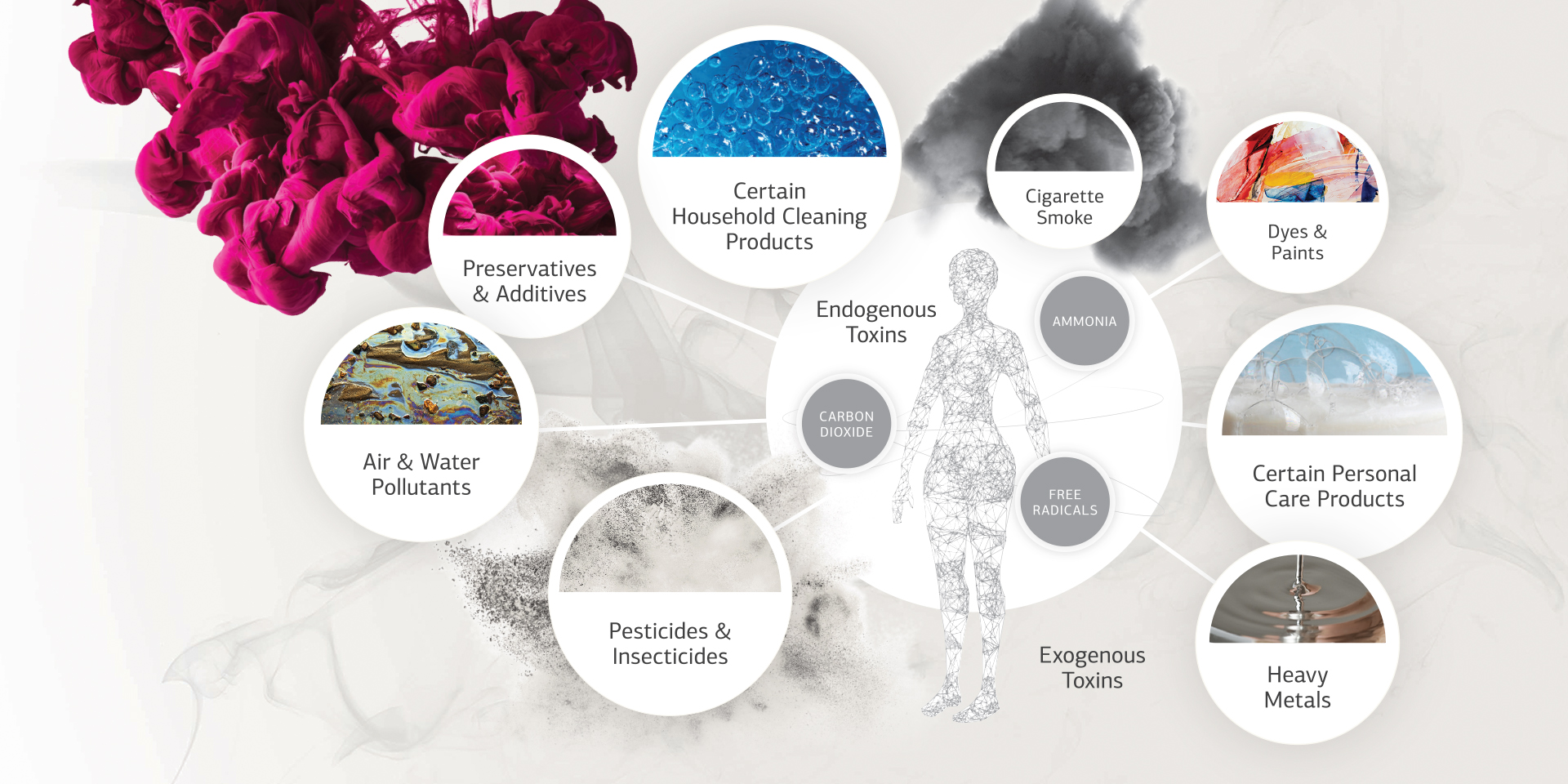How to Tell if You Have Toxins in Your Body (and What to Do Next)

Here are four questions to ask yourself to help determine whether or not you have toxins in your body:
- Do you spend time outdoors?
- Do you use cleaning products?
- Do you drive a car?
- Do you eat food?
Unfortunately, the reality is everyone has toxins in their body. If you’ve read about detoxification and wondered if you might need a detox, the answer is likely yes. We are exposed to toxins every day in what we touch, eat, and inhale. Toxins can contribute to:
- Fatigue or difficulty sleeping
- Indigestion and other temporary gastrointestinal upset
- Food cravings and weight gain
- Reduced mental clarity
- Low libido
- Skin issues
- Joint discomfort
These are such common experiences, we often don’t even think about something being “off” when we talk about poor sleep or food cravings. These things have become a normal part of life, but could actually be signs of toxins in our bodies. While this can be an overwhelming realization, rest assured that A) there are concentrated sources of toxins that we can focus on avoiding, and B) there are effective, nutrition-based detoxification programs to support your body in eliminating toxins the way your body is meant to detox on its own.
Common sources of toxins (yes, they’re everywhere)
Environmental toxins can come from a wide variety of endogenous (produced within the body) and exogenous (produced outside of the body) sources. Endogenous toxins may be products of physiological processes, such as carbon dioxide, ammonia, and free radicals. You may be more familiar with sources of exogenous toxins that you see in everyday life:
- Household cleaning products
- Preservatives and additives
- Air and water pollutants
- Insecticides & pesticides
- Cigarette smoke
- Dyes & paints
- Personal care products
- Heavy metals
You’re probably starting to see how omnipresent toxins are and why they’re unavoidable.
Don’t worry, though; we have a solution for you.
Okay, I’m “toxic.” Now what?
There’s no need to be overwhelmed by this list of potential toxin sources. First things first - reduce exposure where you can, and seek out a detoxification program supported through targeted nutrition. Why is targeted nutrition important? We discuss in our recent blog post.
We recommend working with a health care practitioner during a detox program in case you have any specific health questions during your program. When you meet with your practitioner, they’ll likely talk to you about your diet, any risk of nutrition deficiencies, your coffee and alcohol consumption, your general health status, and your toxicity level, which could determine whether a 10-day or 28-day detoxification program is right for you.
will help assess the level of toxins in your body and your need for a metabolic detoxification program. Additionally, you’ll want to take into account your unique experience of health in detail, including things like your mood, energy, and digestion and discuss these with a practitioner if working with one. Additionally, a toxicity questionnaire will ask about your risk of exposure based on your environment, including how frequently you use things like bleach, pesticides, certain cosmetics, and exhaust fumes.
A detoxification program may include a wide variety of fruits, vegetables, whole grains, and whole-food-based supplements designed to support the body through metabolic detoxification. So even if you do have toxins in your body, there are options for you! Get started researching today.
